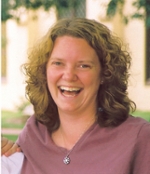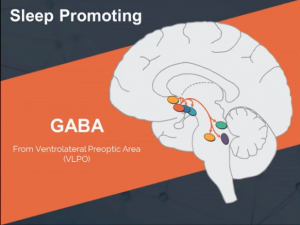SomnusNooze
What is GABA? What role does it play in sleep? And is GABA activity increased by something in the cerebrospinal fluid of people with hypersomnia? We are very pleased to present Part 2 of a new two-part series by neuroscientist Amanda Freeman, PhD, of Emory University, which describes in layman’s terms, exactly how y-aminobutyric acid, better known as GABA, affects sleep.
 In Part 1 of her video series (which was published in last month’s SomnusNooze), Dr. Freeman explained what GABA is and what role it plays in our sleep. Dr. Freeman noted that although there are 5 wake-promoting transmitters in your brain, there is only one neurotransmitter that promotes sleep – and that is GABA.
In Part 1 of her video series (which was published in last month’s SomnusNooze), Dr. Freeman explained what GABA is and what role it plays in our sleep. Dr. Freeman noted that although there are 5 wake-promoting transmitters in your brain, there is only one neurotransmitter that promotes sleep – and that is GABA.
In Part 2 of Dr. Freeman’s video series, Dr. Freeman explains exactly how GABA promotes sleep – and that is by inhibiting the activity of all of the 5 wake-promoting transmitters. Dr. Freeman also describes how research by Dr. Rye and his colleagues have identified an endogenous molecule in the cerebrospinal fluids of patients with hypersomnia that increases the activity of GABA receptors. This research suggests that, with respect to GABA-related hypersomnia, the problems with wakefulness may be due more to excessive activity of GABA, rather than to a defect in the brain’s wake-promoting transmitters.
CLICK HERE to watch the second part of Dr. Freeman’s two-part video series. You can also download the transcript HERE and/or the slides HERE.
And check out HF’s video library HERE!
NOTE: If you have any questions about this GABA video series, please consult your own personal physician or , not Dr. Freeman.
And if you would like to learn more about GABA, here are a few of our related articles:
Finally, if you enjoy these new educational videos, as well as the GABA-related articles on our website, please consider donating to the Hypersomnia Foundation. As a nonprofit, charitable organization, we are dependent on donations and grants to continue raising awareness of, and increasing research into, rare sleep disorders like idiopathic hypersomnia.

